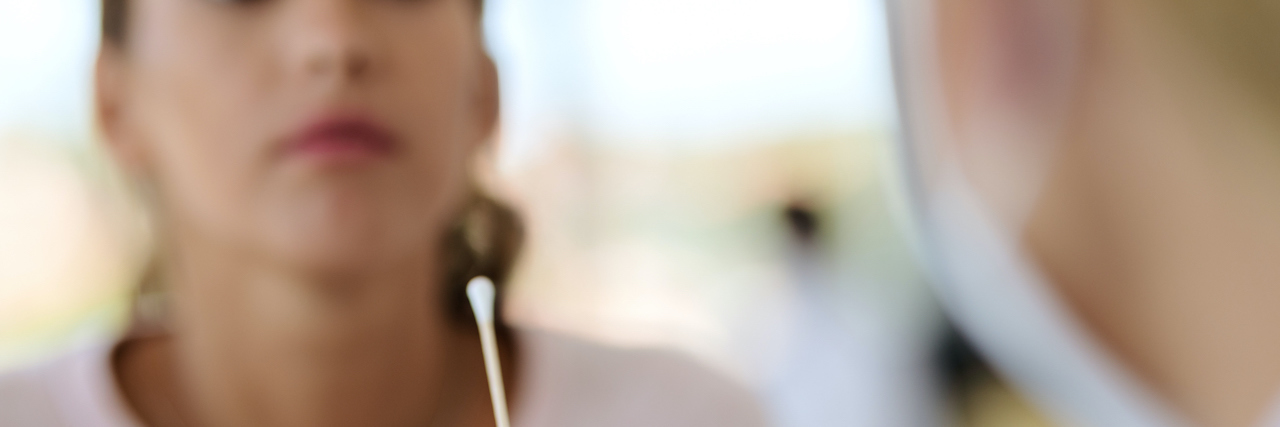Last week, I found out I was exposed to someone who then tested positive for COVID-19. We were both vaccinated, but breakthrough cases are real. I was fearful, and rightfully so, even if I didn’t have obsessive-compulsive disorder (OCD). I was fearful of being sick myself, of having to isolate and miss activities like work and theater, and of causing others I’ve been around to get sick. Experiencing a pandemic like COVID causes anxiety, not just for those already with anxiety disorders.
I went and got a rapid test as soon as I found out about the exposure, and thankfully my test was negative. Within the next day though, I started to get a scratchy throat. I felt a little congestion in my sinuses. And my anxiety was through the roof. What if I had tested too soon? What if I had COVID and was unknowingly still exposing others? At first, I chalked it up to allergies or psychosomatic symptoms. But after two more days of a mild sore throat, I went to get another COVID test. This was again, thankfully, negative.
The difficult piece is also having obsessive-compulsive disorder, because OCD thrives off of uncertainty. And nothing, even two negative tests, is 100 percent certain. What if I should have gotten a more accurate PCR test instead of the rapid test? What if I got lucky with two false negatives? Maybe I then continued to expose more people to the virus. I’m confident I did the right thing by getting that first COVID test. I followed CDC guidelines after being exposed to someone who later confirmed positive, and I continued to wear a mask the whole time when inside around others. But the second test? That one seems to fall more in a grey area.
Of course, OCD wanted me to also get a third test in a few more days, and to quarantine until I had another negative. But having OCD means there will never be enough reassurance to satisfy my brain. At some point, I have to sit with the uncertainty. A third or fourth or fifth COVID test won’t be enough to convince OCD. If anything, more tests may only fuel my anxiety, and soon I’ll be getting a COVID test every day.
It’s complicated because I want to do the right thing. I want to keep others safe, especially those who may have compromised immune systems. And also, “doing the right thing” can itself become OCD and a compulsion. All this to say, having OCD is complicated. There are some rules-of-thumb to detect what is OCD and what is “real.” Anything that starts with “what if” or “maybe,” is almost always OCD. And anything that is clearly CDC guidelines should be followed. It’s the in-betweens that get tricky.
I think most of us can relate to this anxiety surrounding COVID, whether or not we have OCD. At least in that, there is certainty that with all these spiraling thoughts and in what I’m feeling, I’m not alone.
Getty image by Drazen Zigic

